Philosophy of Life Essay
Outline of Essay:
- Introduction
- Major Philosophies of Life
- Philosophies of Life in Different Religions
- Significance of Philosophy of Life
- FAQ’s
Introduction
Life is an exciting journey filled with surprises and unexpected events. Every individual has his own opinion about life and its purpose. This opinion is based on the beliefs, values, experiences, and culture he holds close to his heart. There exists no one right answer as every person’s philosophy of life varies from one another. It can range from the simple belief that life is to be enjoyed, to a more complex outlook on existence and its purpose.
Major Philosophies of Life
There are three types of philosophies of life namely: nihilism, existentialism, and humanism. Nihilism is the belief that life has no meaning or purpose, while existentialism is the belief that life should be lived to its fullest. Humanism on the other hand suggests that we should focus on developing a sense of altruism and appreciation for our fellow human beings.
Existentialism is the belief that life should be lived to its full potential and that one should take responsibility for their actions and decisions. This philosophy emphasizes making meaningful choices, taking risks, and living with courage rather than settling for a mundane life. It stresses finding meaning in whatever we do and striving to achieve our full potential.
Humanism is based on the belief that humans are capable of acting morally, ethically, and responsibly in their interactions with one another. It focuses on cultivating a sense of appreciation for life, developing positive relationships, and being compassionate toward others. Humanists believe that every person has a unique purpose and mission in life and that it is our responsibility to discover what this mission is.
Philosophies of Life In Different Religions
Most religions have their philosophy of life that guides the way they live.
The philosophy of life in Christianity is based on the belief that God created mankind and gave us free will to make our own choices. It stresses living a moral, virtuous, and upright life, with humility and reverence for God and His teachings.
The Islamic philosophy of life is based upon the belief that Allah is the one true God who has created us to serve Him. Life should be
lived according to His laws and teachings, and Muslims should strive to live a life of humility, piety, and obedience.
The Buddhist philosophy of life is based on the belief that our existence is a cycle of birth, death, and rebirth. It encourages us to live in harmony with ourselves and others, by developing wisdom, compassion, and understanding. Buddhists believe that by living a virtuous life we can eventually be liberated from suffering and reach enlightenment.
The Hindu philosophy of life is based on the belief that the soul is immortal and that it reincarnates after death. Hindus strive to live a virtuous life, in harmony with nature and other living beings. They believe that by leading a moral life and performing good deeds we can attain spiritual liberation.
The philosophy of life in Judaism is based on the belief that God gave mankind the Torah, which contains His laws and teachings. Jews strive to live a moral life according to these teachings, by being generous and kind to others, living with humility and reverence for God.
Significance of Philosophy of Life
Philosophy of life plays an important role in helping us make sense of the world around us. It gives us direction and helps us answer difficult questions such as “Why are we here?” and “What is the purpose of life?”. By reflecting upon different philosophies, we can come to a better understanding of our own beliefs and values, and gain insight into the meaning we want to create in our lives.
Why are we here?
We are here to live a fulfilling and meaningful life. Every person’s purpose is unique, but in general, we all strive for happiness, and connection with others, and contribute something of value to the world. By reflecting on different philosophies of life, we can find clarity about our own goals and aspirations, and make choices that bring us closer to our desired outcomes. We can also gain an understanding of how our actions affect others, and strive to make the world a better place.
What is the purpose of life?
The purpose of life is ultimately up to each individual, but it is generally accepted that the goal of life should be to live a meaningful and fulfilling existence. This could mean creating positive relationships with others, pursuing our passions and interests, or making a difference in the world by helping those who are less fortunate. By reflecting on different philosophies of life, we can find our purpose, and make choices that help us reach this goal. Ultimately, it is up to each of us to decide what gives our lives meaning and purpose.
FAQ’s
Who is the father of philosophy?
The father of philosophy is usually cited as Socrates, an ancient Greek philosopher. He is often credited with laying the foundations for Western philosophy by challenging accepted notions and encouraging critical thinking in his students.
What is the aim of philosophy?
Philosophy aims to gain a better understanding of the world around us, by reflecting on questions such as “What is the nature of reality?” and “How should we live our lives?”. Philosophy also encourages us to think critically and examine our beliefs and values, to gain insight into the meaning we want to create in our lives.
What is the philosophy of life?
The philosophy of life refers to the various beliefs and values that guide us as we strive to live a meaningful and fulfilling existence. By reflecting upon different philosophies, we can come to a better understanding of our own beliefs and values, and gain insight into the meaning we want to create in our lives.
Download Pdf of the Philosophy of Life Essay
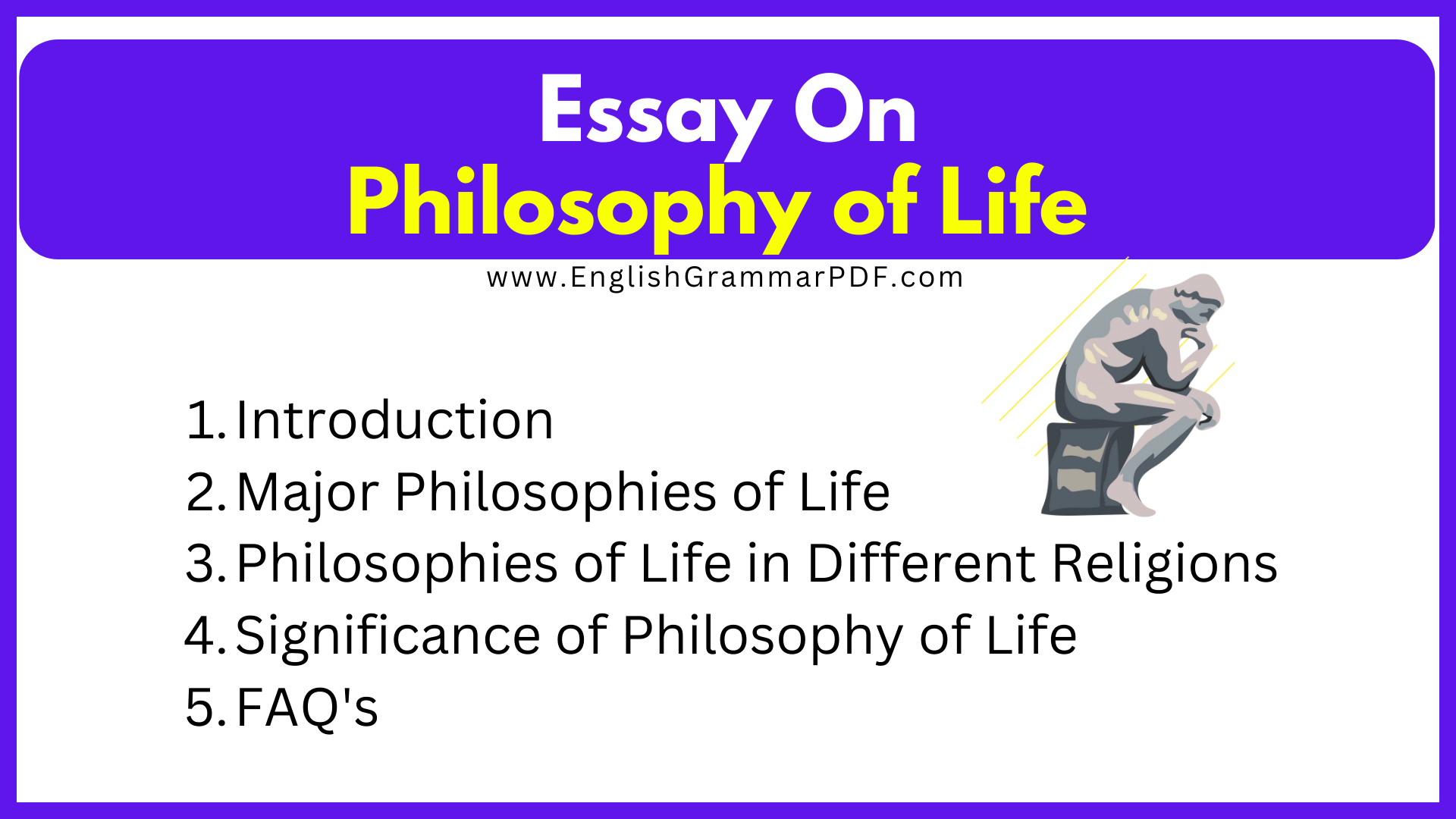
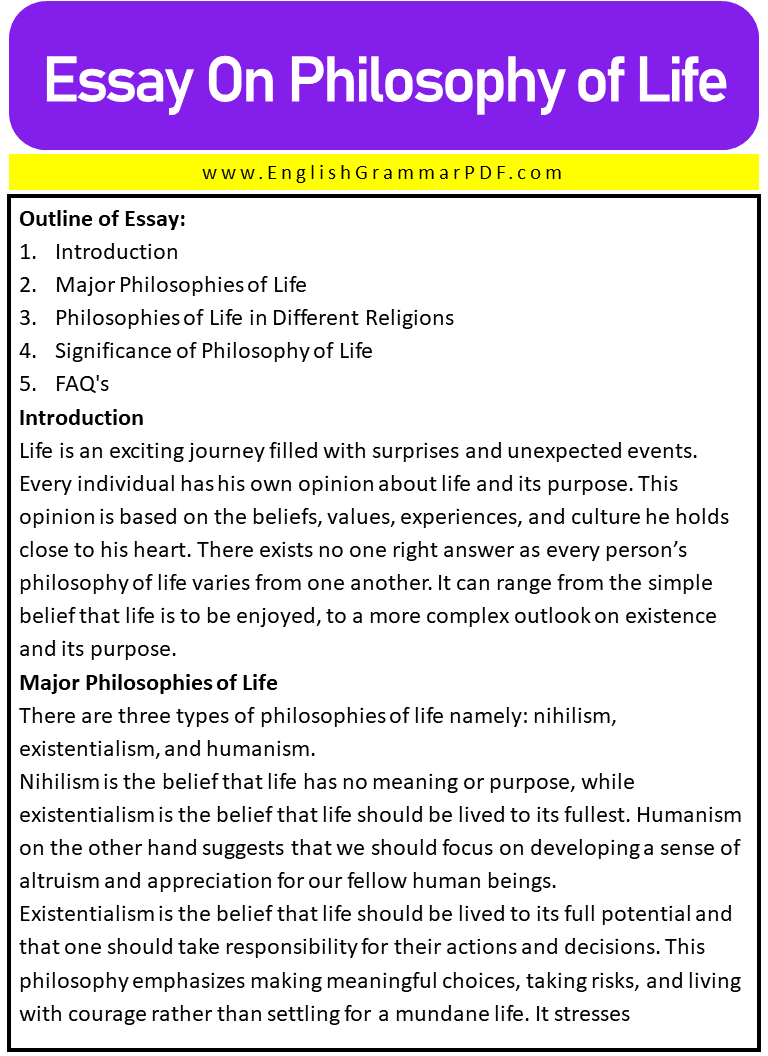
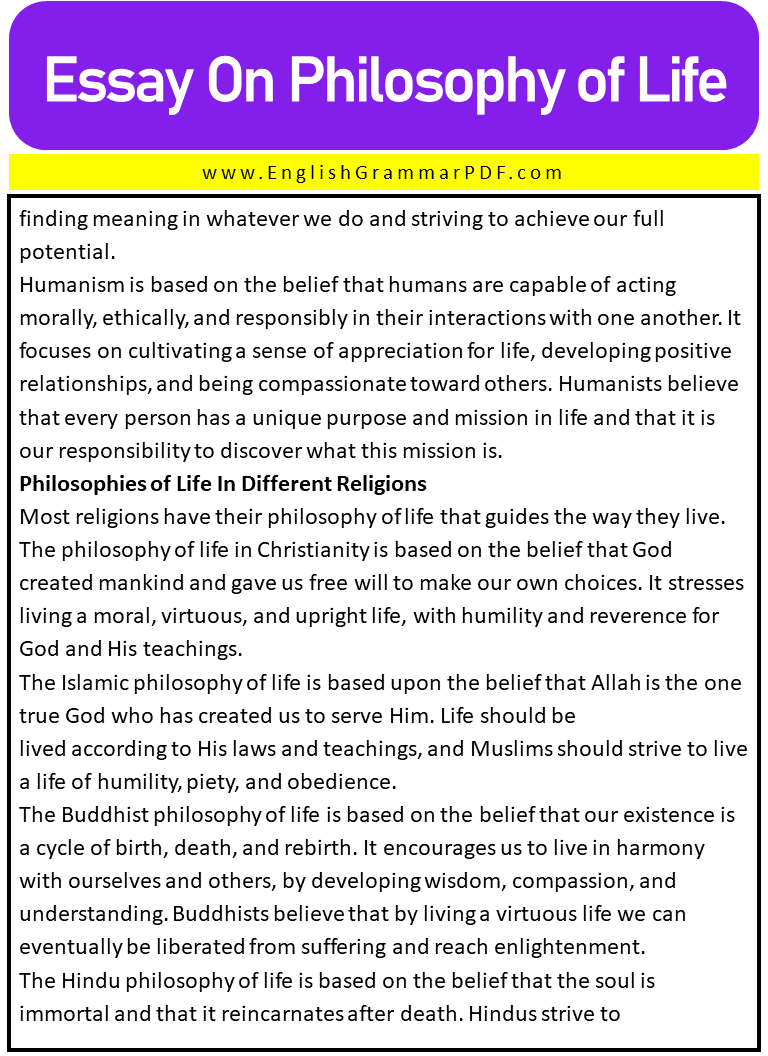
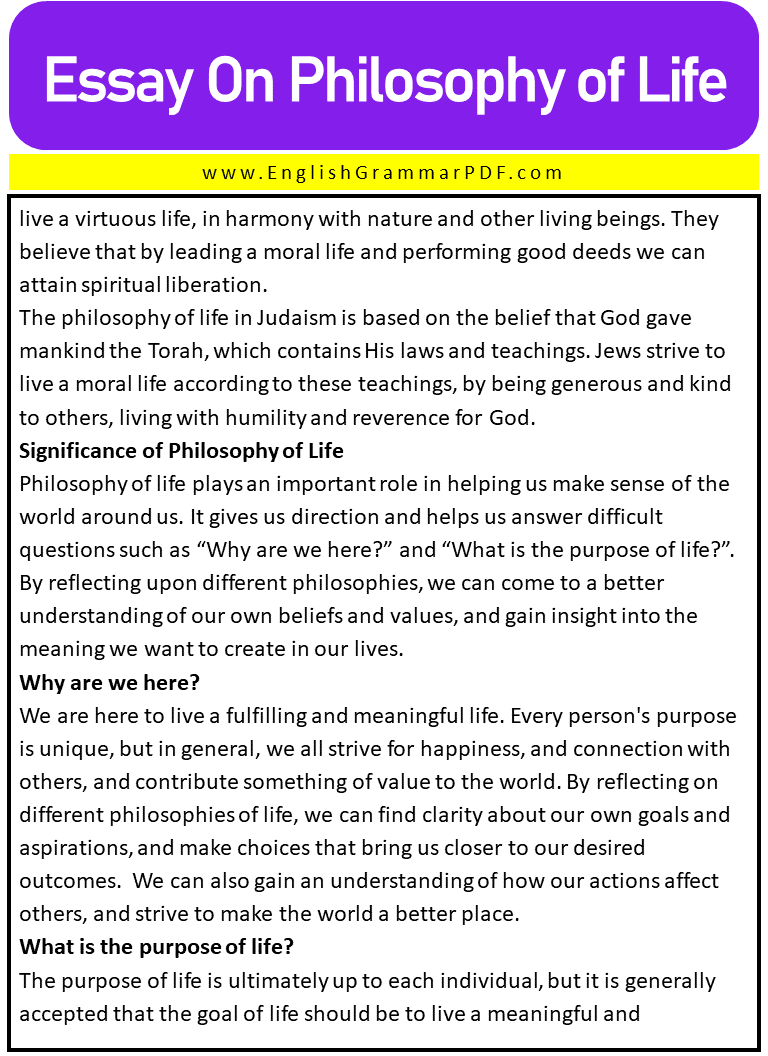
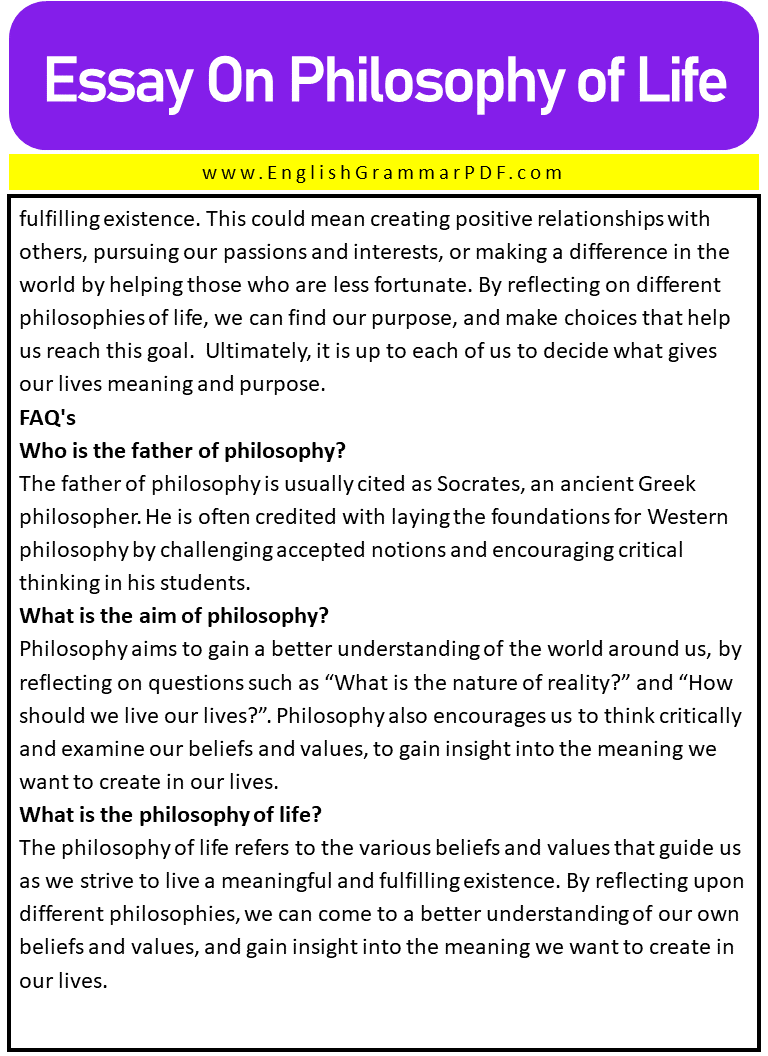
More Essays:


